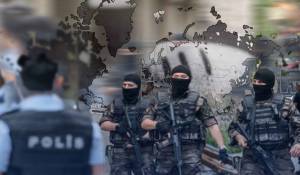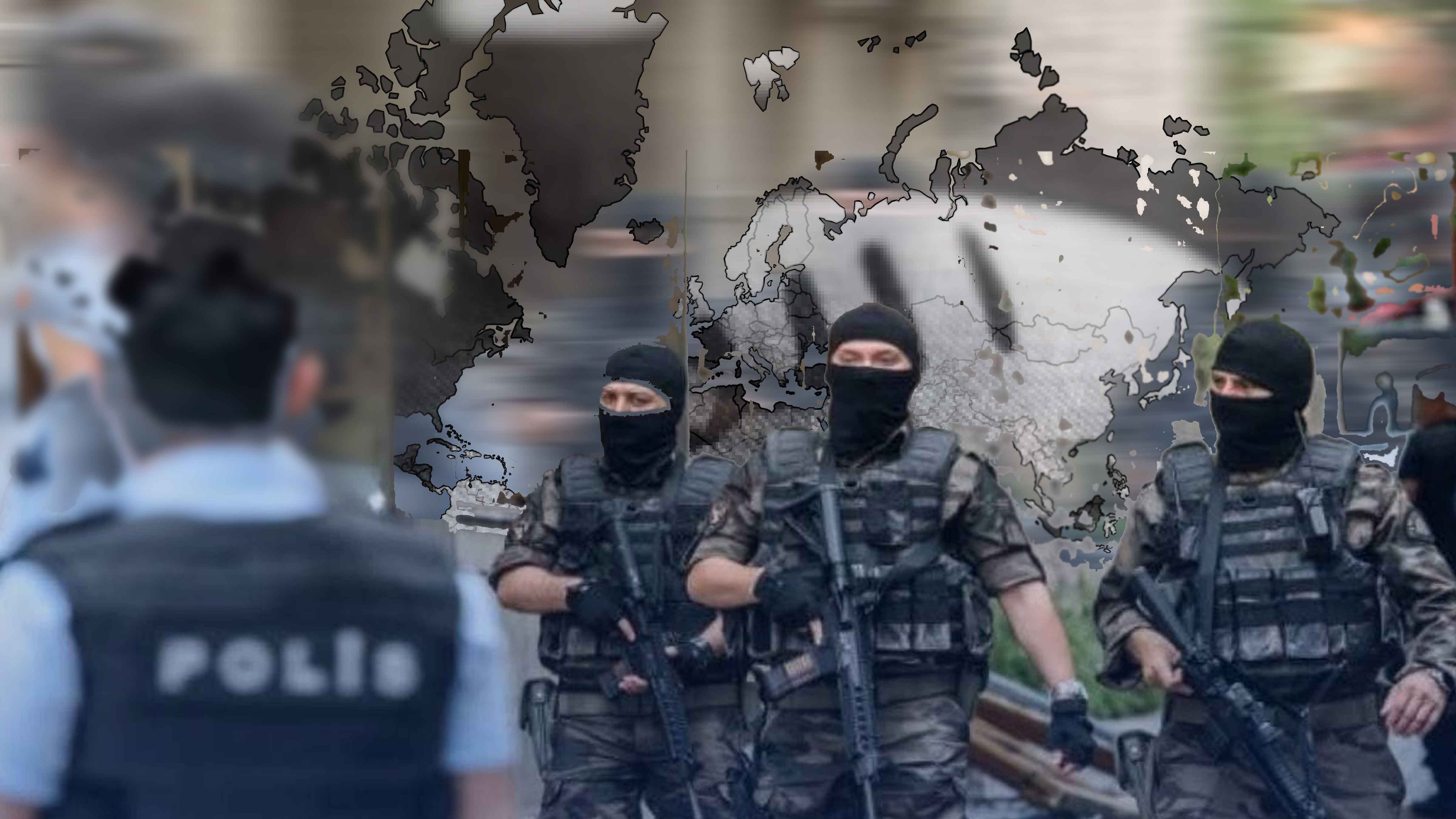Within the first weeks of June, several countries conducted a number of operations against Islamic State’s networks with links to the organization’s branch in the Khorasan region – Islamic State Khorasan (ISKP) –, namely Afghanistan, Pakistan, and Central Asia. Such operations not only involved the physical arrests of individuals affiliated with ISKP and the dismantling of plots, but also they included the banning of several websites used by the group and the broader Islamic State organization as well as setting up new measures to disrupt the criminal activities of ISKP leaders.
Countries decided to crack down on ISKP as a result of a long series of renewed threats the organization has been moving both locally as well as internationally. Within the last two months, ISKP has been boosting its traction power in inspiring, influencing, aiding, or directly orchestrating plots, both within its area of activities and abroad, particularly with attention to the West theatre. As part of its
global strategy for attacks, the group attempts to take advantage of international events to urge its followers to conduct attacks on such occasions by increasing the amount of specifically tailored propaganda. The latter not only inspire supporters, but also provide ISKP sympathizers with operational guidelines regarding target selection; modus operandi; and possible weapons to use.
In line with this strategy, ISKP and its offspring Islamic State Pakistan (ISPP) have been focusing on tailoring propaganda on the occasion of a number of sports events that are set to occur during 2024 around the world, such as the ICC World Cup 2024 in the US; Euro 2024 in Germany; and Olympic Games 2024 in France. Most propaganda urges Islamic State supporters to wreak havoc among people attending the events and carry out attacks, following a pattern similar to the March 22 attack at the Crocus City Hall, Moscow, Russia, which started the renewed
influx of propaganda and foreign plots by ISKP and, generally, by the Islamic State.
Poster circulated by ISPP

Picture feature in ISKP Voice of Khurasan, Issue 35
As a result, in the past weeks, Western security agencies, governments, and analysts warned about possible attacks occurring in the West during such events. The head of Germany’s domestic intelligence services, Thomas Haldenwang,
recently argued that the country was currently taking measures to prevent possible terrorist attacks during the Euro 2024. Such “Islamic terror threat” has been amplified by the ongoing war in Gaza and by the burning of copies of the Holy Quran, mentioning that ISKP is considered a primary threat for international plots in Germany. Such claims were
echoed more specifically by Port Authority of New York and New Jersey, Security Chief Greg Ehrie, who stated that ISKP threat was not only visibly increasing its external operations, but also remains an unknown thus unpredictable threat to many officers in charge of security. On the other hand, Patrick Ryder, the Nassau County police commissioner, also
stated that due to mounting
threats from Islamic State, the India vs Pakistan ICC match on June 9 had been secured by police sniper patrols. While no actual attack materialized, the pressure on security measures remains high. Similarly, FBI Director Chris Wray had
reported to the Senate earlier this month that there was the risk that militant organizations, such as ISKP, might attempt to carry out an attack on US soil imitating the Crocus City Hall attack. The likeliness of a similar strike within the US was also
maintained by Gen. Frank McKenzie, former CENTCOM, who said that not only the US have limited capabilities in predicting and thwarting ISKP plots in the US, but also that the group had demonstrated the willingness to attack. French authorities, too, repeatedly warned about the existence of plots linked to ISKP aimed at the Olympic Games; EU anti-terrorism coordinator, Bartjan Wegter
stressed ISKP as a mounting threat to the event, pointing out to a diffuse threat.
In the wake of this diffuse threat, regional and Western countries decided to raise security and conduct a series of arrests against individuals connected to the Islamic State and ISKP. Hence, on June 9, German police in Cologne
arrested an individual who had applied to work as part of the Euro 2024 staff; the individual was allegedly planning to carry out an attack during the matches and had previously been in touch with ISKP, having transferred almost $1,700 via a cryptocurrency exchange to the organization. A week before, in Saint-Étienne, France, police foiled the
first plot against Olympic Games 2024 by arresting a suspect who was planning to carry out an attack on the local stadium. While security forces did not disclose his affiliation with any specific Islamic State’s branch, it is worth noticing that after the Crocus City Hall attack, French President Emmanuel Macron
mentioned that France had previously disrupted several plots orchestrated by the organization. At the same time, countries disrupted plots which can be traced back to other cells of Islamic State, either independent or connected to other branches. For instance, FBI, Interpol, and Spanish authorities
dismantled a cell that was planning to carry out an attack against a bus of Real Madrid players and its fans.
However, perhaps the most impactful operation involved the
arrest of eight Tajik nationals in Los Angeles, New York and Philadelphia, US, due to alleged links to ISKP and the intention of carrying out attacks in the country. As the individuals allegedly entered the country from the southern border, this raised
questions about managing borders and intelligence collections. Significantly, the eight men had stayed in Russia before, where Islamic State carried out the Crocus City Hall attack thanks to its Tajik network in the country, which retains links with ISKP. Furthermore, as part of its efforts to tackle the transnational dimension of ISKP, the US Department of Treasury also
announced that four individuals with links to the Islamic State have been sanctioned due to their involvement in human smuggling network between Central Asia and Türkiye. The sanctioned individuals are reportedly Uzbek and Georgian nationals.
However, not only Western countries took action against alleged ISKP supporters. Recently, the State Committee for National Security of Kyrgyzstan (SCNS)
reported that 15 citizens had been arrested due to their affiliation with the Islamic State. According to the press release, they had been recruited by the organization’s branch in Afghanistan, ISKP.
It is alarming the fact that ISKP individuals and cells have been discovered and neutralized in several parts of the world. While this is
not something new, it is evident that ISKP is trying to capitalize on specific events in the Western world in order to boost its image and thus attract funds and recruits to channel in their main area of activities, Afghanistan, Pakistan, and Central Asia. In this scenario, the powerful tool of the propaganda machine should not be underestimated, as a recent case in Germany revealed. In June 2023, Germany
arrested seven individuals in the country originally from Central Asia (Turkmenistan, Tajikistan, and Kyrgyzstan) who had
links to ISKP and who were in contact with other two individuals in the Netherlands, also from Central Asia. A year later, investigations
revealed that the cell intended to target the Ibn Rushd Goethe Mosque in Berlin-Moabit, Germany, which is considered a “liberal” mosque which also allows the participation of Muslims from homosexual and queer communities. Significantly, the same mosque had been previously outlined as a specific target of ISKP attacks in issue 22 of ISKP English magazine, Voice of Khurasan. In the magazine, ISKP referred to the mosque as a place where a “deviant” form of Islam was practiced, hence suggesting to take action against it. Furthermore, it was also revealed that three members of the cell personally knew the ISKP member, Abu Muhammad al-Tajiki, who carried out a
suicide attack in Kabul, Afghanistan at a Sikh temple in June 2022.

A paragraph from Voice of Khurasan, Issue 22
The widespread use of propaganda online by the Islamic State has been significantly boosted by the actions of ISKP’s Al-Azaim Foundation since 2020/2021. Particularly, the latter has been relying on an integrated network of other online entities which provided Al-Azaim Foundation with access to websites and translation tools, which amplified reach and quality of ISKP propaganda. As a consequence, on June 14, Europol
revealed that under a joint operation, Operation HOPPER II, judicial and law enforcement authorities across Europe and the US dismantled several of such online infrastructures to disrupt platforms and websites for militant communications and propaganda. As a result, nine individuals were arrested and servers were taken down in Germany, the Netherlands, the United States, and Iceland. One of the biggest achievements of the operation was the disruption of the I’Lam Foundation, a website that has been providing ISKP with a stable platform where to translate and upload its propaganda for the past three years.

Screenshot of a conversation of ISKP Tajik users praising the hostage situation in Rostov-on-Don
However, notwithstanding CT efforts and the intense campaign aimed at disrupting the online activities of Islamic State and ISKP, the latter is continuing to project itself as the main source of inspiration of global jihad. On the one hand, ISKP users rely on a broad set of tools for producing and consuming propaganda, from traditional platforms, such as Facebook, Telegram, and RocketChat, to new alternative ways, as on Teleguard. On the other hand, while individuals are arrested and cells are busted, the overall, loose network of ISKP – which is intricate and intersects other Islamic State regional networks – poses a hard issue to tackle. Not only ISKP would just need a successful plot in order to gain new traction, but the attack does not have to be carried out by ISKP itself, as the group is perfectly capable of subsequently capitalizing on it even if it would be partially involved or not at all. As per its media strategy, thanks to its propaganda machine, ISKP internationally elevates Islamic State attacks which occurred in areas of interest, thus attracting funds and recruits to perpetuate its loose network or to boost its influence and galvanize supporters. The recent brief takeover of a prison in Rostov-on-Don, Russia by half a dozen of Islamic State inmates might become the next key feature in ISKP propaganda.


